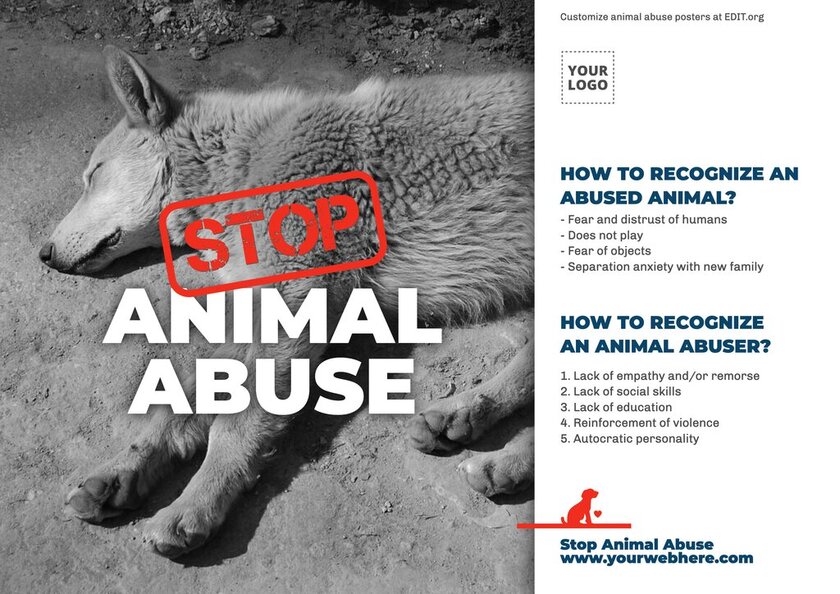Animal cruelty is a pressing concern that transcends borders, and Ireland is not exempt from this grim reality. The importance of understanding how to report animal cruelty cannot be overstated. It not only protects vulnerable creatures but also fosters a culture of responsibility and empathy within society. In this comprehensive guide, we will traverse the legal landscape surrounding animal welfare in Ireland, illuminate the intricacies of the reporting process, and inspire both awareness and action.
The foundation of animal welfare in Ireland is encapsulated within several key legislations, chief among them being the Animal Health and Welfare Act 2013. This pioneering law represents a significant advancement in the protection of animals. Its extensive provisions encompass various forms of mistreatment, thereby serving as a pivotal framework for understanding what constitutes animal cruelty. According to this legislation, cruelty can manifest through physical assault, neglect, and the overarching failure to provide adequate care and sustenance.
So, how do you go about reporting animal cruelty? The first step involves recognizing the signs of mistreatment. Animals suffering from neglect may appear emaciated, exhibit signs of injury or disease, or simply lack a safe environment. The haunting visual of an animal confined under deplorable conditions can spur a compassionate individual into action. However, discerning between accidental neglect and willful cruelty can often be a murky endeavor. Therefore, a thorough observation and an understanding of the legal definitions are paramount.
Once you suspect animal cruelty, the next logical progression is to gather evidence. This step requires meticulous attention to detail. Documentation can take the form of photographs or videos, precisely capturing the conditions witnessed. Keeping a record of dates, times, and specific occurrences can substantiate your claims when you approach authorities. Additionally, testimony from witnesses can bolster your case. Making notes and compiling a comprehensive account of the observed cruelty assists in building a compelling report to present to the relevant bodies.
In Ireland, there are several avenues for reporting instances of animal cruelty. Local authorities, including municipal councils, hold the responsibility for enforcing animal welfare laws. You can contact them directly, and many have dedicated animal welfare officers who are trained to handle such complaints effectively. You can also report cruelty to the Irish Society for the Prevention of Cruelty to Animals (ISPCA), a pivotal organization in the fight against animal cruelty, which investigates allegations and promotes the welfare of animals nationwide. The ISPCA offers a helpline and an online reporting form, simplifying the process for those seeking to initiate action.
Moreover, the Garda Síochána (Irish Police) play a role in addressing serious allegations of animal cruelty, especially those that may intersect with broader criminal activity. If you encounter a situation that poses immediate danger to an animal, contacting the police should not be your last resort but a primary course of action. They possess the authority to intervene swiftly, which is essential during emergencies.
Each report made is subject to scrutiny and investigation. The authorities are obligated to assess the validity of the claims put forth. They may conduct home visits or inspections to collect further evidence. The protocol follows a stringent procedural path, beginning with initial assessments and potentially leading to formal charges if cruelty is substantiated. This unwavering adherence to procedure underscores the seriousness with which the law treats animal welfare.
Upon conviction for animal cruelty, there are various penalties that one might face. These can range from fines to imprisonment, depending on the severity of the offense. More importantly, individuals may face restraining orders prohibiting them from owning or being near animals in the future. This shift in legal perspective serves as a deterrent aimed at protecting animals and ensuring a safer environment for them.
Educational outreach plays an integral role in reducing instances of cruelty. Many organizations, including the ISPCA, engage in proactive initiatives aimed at fostering a deeper understanding of animal welfare. Workshops, community events, and educational programs in schools are designed to cultivate empathy and responsibility among future generations. Such efforts promise to cultivate a society that prioritizes the dignity and rights of all creatures, mitigating the prevalence of cruelty through awareness.
Engaging in activism, whether through grassroots movements or social media campaigns, can amplify voices calling for animal welfare reforms. The synergy created by passionate individuals coming together can lead to systemic changes that enhance animal protection laws. Advocacy efforts can also focus on the importance of responsible pet ownership and the ethical treatment of all animals. Change often begins with a spark of curiosity and a commitment to understanding the nuances of animal welfare.
To conclude, the pursuit of reporting animal cruelty in Ireland is not merely an act of denunciation but a fundamental duty of citizens committed to protecting the most vulnerable among us. Understanding the law, documenting evidence, and knowing how and where to report potential instances of cruelty empower individuals to take action. This guide serves as a clarion call to shift our perspectives and embrace our roles as guardians of those who cannot voice their suffering. By fostering an environment of awareness and responsibility, we can significantly diminish the prevalence of cruelty and ensure a more compassionate society.








